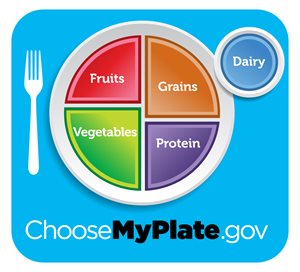Exercising and being active is only half the battle. In order for children and adolescents to have the best chance at becoming successful athletes they need to fuel their bodies appropriately. A common misconception is that because a child may be very active, he or she can eat anything because it will burn off in practice. While the child may burn many calories in practice or competition, he or she will not be playing at an optimal level if health foods are not being consumed.
Acquiring healthy eating habits is very important in keeping the child feeling energized, attentive, and performing at his or her best. Optimal nutrition is necessary for both fueling during training, and recovery from the physical activity. It is also necessary to meet the demands of energy for growth and maturation.
Here are helpful nutrition tips for everyday athletes:
Use carbs for energy
- Choose foods such as pasta, whole-grain breads, and potatoes for lasting energy.
Spread out consumption of protein throughout the day.
- Consume protein foods throughout the day rather than all at one sitting. Have the athlete consume a protein such as eggs, low fat turkey, peanut butter, or tofu at every meal.
Be cautious of fatty foods
- Fatty foods decrease the rate of digestion, not an ideal situation for an athlete preparing to practice or compete. Greasy foods such as hamburgers, fries, pizza, and high fatty desserts can leave the athlete feeling sluggish, ill, and tired.
Be conscientious of food safety
- Make sure that the food the child is consuming is not spoiled or served at the wrong food temperatures. This can lead to illness or food poisoning. Symptoms to look for are nausea, stomach cramps, vomiting, or diarrhea.
Staying hydrated is key!
- Drinking water should start a couple of hours before the child sets foot on the playing field. During the game or practice, the child should consume approximately ½ cup of fluids about every 15 minutes. After the game or practice is over, the child should continue to drink water to replenish sweat loss. For athletes participating in exercise that lasts 60 minues or less, water should be the main source of fluid. Athletes who train for over an hour should consume sports drinks to replenish electrolytes.

Meal-Timing for Young Athletes
Timing is important! When you eat is just as important and what you eat! The body needs approximately two to three hours to digest a regular meal (i.e. breakfast or lunch) and 30 minutes for a light snack (i.e. granola bar) prior to a game or training session.
Eating right on the day of the game is extremely important to provide the child the greatest opportunity to perform at his or her best. Below are some tips on what to feed your child for pre-game (breakfast), lunch, during the game, post-game snack, and dinner.
Pre-game breakfast
Breakfast should take place approximately three hours prior to the start of the competition. Healthy options for this meal are scrambled eggs, fruit, yogurt, and either calcium-fortified orange juice or fat-free milk.
Lunch
Lunch should be hearty and include a wide variety of food groups such as lean protein, whole grains, fruit, vegetables, and low-fat dairy.
During the game
Hydration is key during a game or competition. The child will lose fluids through sweat, so it is very important that he or she replenish these lost fluids by consuming water or electrolyte-replacement sports drinks. Foods such as bananas, potatoes, and fat-free or low-fat yogurt and milk can be consumed during this time if there are long enough breaks between the actions.
Post-game snack
Depending on when the competition ends, it may be too soon for the child to eat a full meal such as dinner. Small snacks are good to have on hand for your child. Snacks can include fresh fruit, low fat yogurt, and smoothies. Chocolate milk is also a great choice to offer your child because it is an effective post-workout recovery drink.
Dinner
A post-game dinner should be filling and inclusive of all five food groups: protein, grains, vegetables, fruit, and dairy. These include chicken breast, tuna, salmon, whole-wheat pasta with cheese sauce, a salad, apples or oranges, and low fat or fat-free milk.
Author: Aziza Chambers MS, LAT, ATC
Resources:
- Hospital, N. (n.d.). Pediatric Nutrition | Nicklaus Children’s Hospital. [online] Nicklauschildrens.org. Available at: https://www.nicklauschildrens.org/medical-services/food-and-nutrition
- Castle, J. (2017). Game Day Nutrition Tips for Young Athletes. [online] Eatright.org. Available at: https://www.eatright.org/fitness/sports-and-performance/tips-for-athletes/gameday-nutrition-tips-for-young-athletes